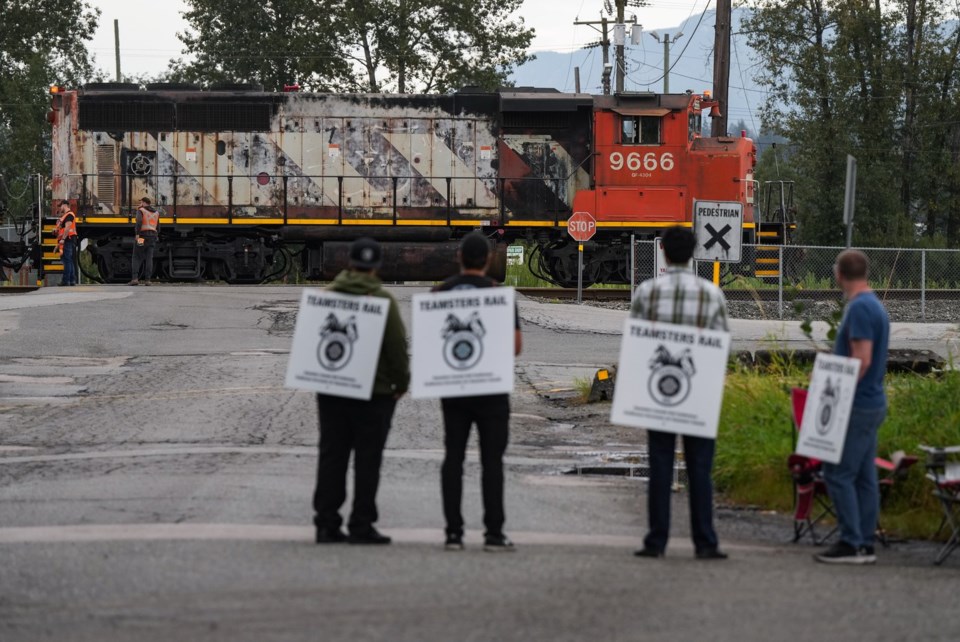VANCOUVER — An end to a countrywide rail stoppage may be in sight, but riders of British Columbia's West Coast Express are facing at least one more day without the service.
The federal government on Thursday asked for binding arbitration in the dispute involving the Teamsters Canada Rail Conference union, Canadian National Railway Co., and Canadian Pacific Kansas City Ltd.
CN said soon after that it had ended its lockout of workers and CPKC said it was preparing to resume operations after the two railways' first-ever simultaneous stoppage.
But regional transport provider TransLink said the West Coast Express, which runs on CPKC tracks, would remain suspended for the rest of Thursday and Friday.
It said services would stay halted "until further clarity is given by CPKC on when trains can operate again."
TransLink said a supplemental bus service would be provided until service was resumed.
West Coast Express trains have been unable to operate since Wednesday night without locked-out traffic controllers to dispatch them.
The Vancouver Fraser Port Authority said on Thursday afternoon that it would take time and collaboration to recover from the railway stoppage.
The authority said most of the Port of Vancouver's marine cargo terminals would suffer from the disruption since two-thirds of port cargo and 90 per cent of international exports rely on rail.
"We continue to monitor the situation following today’s announcement by the federal government," the authority said in a statement.
"A full recovery will take time and collaboration," it said, adding that port users and supply chain partners were working with them to "minimize the potential disruption."
Premier David Eby had said before the federal government stepped in that the stoppage was "terrible news," both for the families of locked-out railworkers and those whose commutes and industries were affected.
The countrywide impasse has affected upwards of 32,000 commuters in Toronto, Montreal and Vancouver, including the 3,000 customers who use the West Coast Express each weekday.
The West Coast Express serves communities between Vancouver and Mission, about 67 kilometres to the east, with stops in the Maple Ridge, Pitt Meadows and Coquitlam areas.
Eby told an unrelated news conference Thursday there had been “massive knock on effects” from the stoppage for a range of people who rely on rail services, from farmers in the Prairies to commuters who use the West Coast Express.
Eby said “the word devastating is probably and understatement" as he urged the companies to sit down with the workers “sincerely” to resolve the stoppage.
University of British Columbia professor emeritus Trevor Heaver, who specializes in transportation, said the stoppage meant busier road conditions for Metro Vancouver drivers.
“Putting more cars on the road is not what we want to see," he said.
Public transit advocates in Vancouver, Montreal and Toronto issued a joint statement before the arbitration announcement saying the stoppage showed rail users were "at the mercy of freight transportation" in Canada.
The statement from Trajectoire Québec, TTCriders and Movement: Metro Vancouver Transit Riders said public transit users were paying for a situation out of their control.
The Greater Vancouver Board of Trade applauded the binding arbitration announcement, with president and CEO Bridgitte Anderson, calling it "welcome news."
“A prolonged work stoppage would have been disastrous for our national economy and our reputation as a trading partner," she said in a statement.
“Additionally, it was regular Canadians and small business owners who stood to bear the worst impacts, from loss of income to increased costs of everyday goods.
This report by The Canadian Press was first published Aug. 22, 2024.
Nono Shen, The Canadian Press

